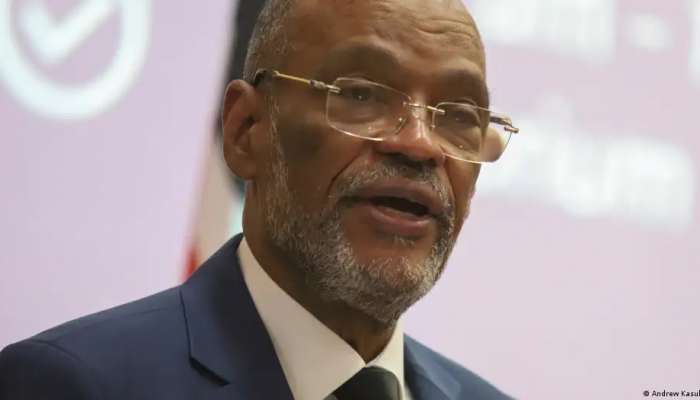
Port-au-Prince: Haiti's Prime Minister Ariel Henry has agreed to resign amid surging violence in the Caribbean country, the chair of the Caribbean Community said late on Monday.
Henry said he will step down once a transitional presidential council is created and an interim premier named. He had held the position, unelected, since the 2021 assassination of the previous president, Jovenel Moise.
"We acknowledge his resignation upon the establishment of a transitional presidential council and naming of an interim prime minister," said Caribbean Community chair Irfaan Ali, also the president of Guyana. Ali thanked Henry for his service to Haiti.
A seven-member presidential council will be formed for the transition to elections in Haiti, which will appoint a new interim prime minister, Ali said late on Monday.
Henry is currently stranded in the US territory of Puerto Rico, following his trip to Kenya last week to lobby for UN-backed police to be deployed in his country.
Members of a Caribbean regional trade bloc known as Caricom organized emergency talks in Jamaica on Monday to address the violence in Haiti. The meeting also involved Canada, France, the UN and US Secretary of State Antony Blinken.
Caricom has pressed for a transitional government in Haiti for months amid protests calling for Henry's resignation.
Guyanese President Mohamed Irfaan Ali, the current Caricom chair, warned that, despite the ongoing talks to restore "stability and normalcy" to Haiti, some Haitian groups "are not where they need to be."
After meeting with Caribbean leaders, Blinken announced $100 million (€92 million) in funding for the deployment of a multinational force to help stop the violent crisis in the country and an additional $33 million in humanitarian aid.
Haiti has seen escalating violence as police battled armed gangs calling for the ouster of Prime Minister Henry.
Influential criminal gangs have long controlled much of the capital, Port-au-Prince.
Henry had ignored the calls for elections, saying the security situation in the country did not allow for this.
Last week, the violence spiraled in the Caribbean nation in his absence after a powerful gang leader held a press conference and said he was trying to oust the government.
Haiti's government announced the extension of a state of emergency by a month and a nighttime curfew in an effort to curb the gang violence that engulfed the capital.
The EU said on Monday that its embassy staff in Port-au-Prince had relocated to the Dominican Republic.
A day earlier, the United States said it had airlifted nonessential embassy personnel from Haiti.
The German Foreign Ministry also issued a statement saying that the German ambassador had left the country "as a result of the very tense security situation in Haiti."